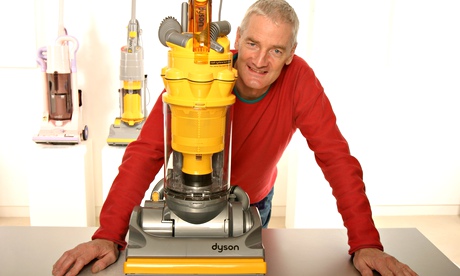
Consumers are being urged to buy powerful vacuum cleaners while they can after it emerged that some of the most powerful models on the market will disappear in September when a new EU rule comes into force.
An EU energy label, to be introduced from 1 September, means manufacturers will not be able to make or import vacuum cleaners with a motor that exceeds 1,600 watts.
The Which? consumer group said many of its Best Buy models had motor sizes that exceeded this, "so if you're in the market for a powerful vacuum, you should act quickly, before all of the models currently available sell out". The wattage will be limited to only 900 watts by 2017 – further restricting choice. Current cleaners typically boast an average of 1,800 watts.
Which? warned that many of the models that appear in its Best Buy tables have motor sizes in excess of the new limit.
Of seven awarded Best Buy status since January 2013, five have motors of more than 1,600 watts. A Best Buy 2,200w vacuum costs around £27 a year to run in electricity – around £8 more than the best-scoring 1,600w it has tested.
The consumer group argues that the move is self-defeating – claiming that householders would simply use the less powerful models for longer to achieve the same degree of cleaning.
The move has also angered manufacturers who agree the move will do nothing to make cleaners more environmentally friendly and will simply reduce efficiency in the home.
For the first time, the labels will give vacuum cleaners A to G ratings for energy use, cleaning performance on carpets and hard floors, and dust emissions. The label also requires a minimum level of performance for the vacuum to be sold in the EU.
But the label is self-regulating and it is unclear whether figures are being corroborated by an independent third party.
Manufacturers' tests that will be used to provide the labelling information are also being questioned. Vacuums are typically tested new and empty and – unlike the testing by Which? – don't take into account loss of suction as the container fills. So manufacturers that give themselves A ratings across the board often don't do so well in independent tests.
Popular cleaners that will be phased out next month by the new rule include a Miele S6210 2,000w bagged cylinder vacuum cleaner and the Panasonic bagged upright vacuum cleaner (also 2,000w).
Dyson vacuum cleaners score highly in the ratings. However, the manufacturer has many concerns about flaws in the system that will ultimately be unhelpful for consumers. It is seeking a judicial review of the legislation at the European court of justice, with judgment due in December 2015. Sir James Dyson, whose company pioneered "bagless" vacuums, said he believed the label itself was a good idea, pointing out that he had never made a machine over 1,600 watts. But he said there were many engineering aspects other than the size of the machine to take into account, and he feared strong performing vacuum cleaners would be rated badly and lead the consumer to buy a machine that simply did not work efficiently.
The European commission believes the new regulations will mean better vacuum cleaners for consumers. European commission spokeswoman for energy Marlene Holzner said in a blog: "As a result of the new EU eco-design and labelling regulations, consumers will also get better vacuum cleaners. In the past, there was no legislation on vacuum cleaners and companies could sell poorly performing vacuum cleaners."

